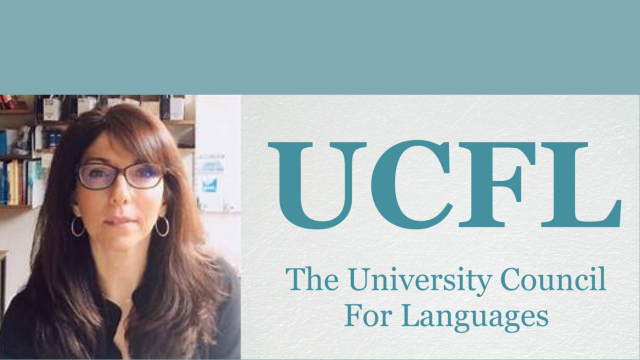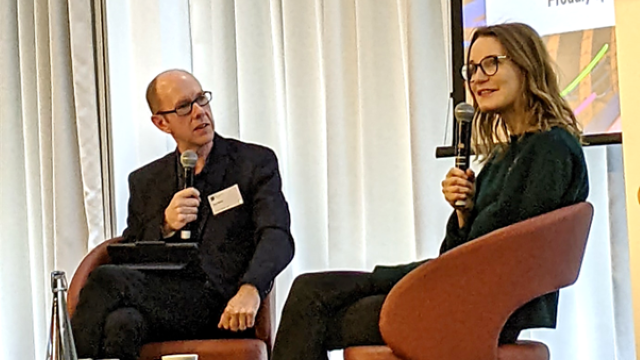-
QUALIFICATIONS
- For Linguists Worldwide
- For UK Public Services
- Preparation
- Policies & Regulation
-
MEMBERSHIP
- Join CIOL
- Membership grades
- NEW for Language Lovers
- Chartered Linguist
- Already a member?
- Professional conduct
- Business & Corporate Partners
-
ASSESSMENTS
- For Second Language Speakers
- English as a Second Language
-
EVENTS & TRAINING
- CPD, Webinars & Training
- CIOL Conference Season 2025
- Events & Networks
- CIOL Mentoring
-
NEWS & VOICES
- News & Voices
- CIOL eNews
- CIOL Awards
- The Linguist
- Jobs & Ads
-
RESOURCES
- For Translators & Interpreters
- For Universities & Students
- Standards & Norms
- CIOL & AI
- All Party Parliamentary Group
- In the UK
- UK Public Services
- Find-a-Linguist
Trends and developments in the German translation market

By Regina Seelos, German/English translator
Like the global markets, especially in the translation sector, the German market is in uproar or turmoil. There’s still tonnes of work out there, but tech companies want to make us – and also our customers – believe that freelance translators will be out of work soon because AI can do it all. Many colleagues have also bought into this and escaped into employment rather than remaining self-employed. I am also not sure what I would do if I were younger, with small children, etc. The tech companies’ narrative and its echo in the economy is powerful.
It is also true that many clients now use free platforms or subscribe to Google’s or DeepL’s services. In the meantime, they have learnt, however, that these services are, in fact, useful for some but not all tasks and are not fully reliable when it really counts. This is what I hear from my clients, at least. They know that, as a minimum, checking the output is necessary and that it is better to use the services of translators for this when the risk of getting it wrong is too high – and have really important things translated by professionals from the start.
Everything that needs skill and expertise is still there for us
This has in fact long been the case with my language combination of German and English. Many in Germany speak English at a level where they can understand most of it – at least good enough for their everyday work. So, jobs like translating business emails and the like are no longer available and have not been for many years. Also gone are jobs like translating software help files, user manuals and many other repetitive texts. I am sure they are taken care of by the new AI LLM or not-so-new neural machine translation technologies, which is okay because they were kind of boring, too. But everything that needs more skill and expertise is still there for us to translate with or without the tools that we choose to use.
To translate official documents in Germany, one must be a sworn translator
Certified translations continue to be a good market. We have many migrants coming to Germany from many different countries, and their documents like birth, marriage, and school or university certificates need to be translated for accreditation here or for moving on years later. I expect this development to last for a while. To translate official documents in Germany, one must be a sworn translator and, for this, fulfil some requirements, e.g. pass state examinations or an equivalent, have a clean police record, and present a clearance certificate from the insolvency court. A new law in this regard was passed only a few years ago with the intent to harmonise the state laws and to ensure quality. A hurdle here is that this requires working in both directions or at least passing the examinations in both directions, i.e. also in the non-native language.
It is easy to find direct clients, especially among smaller and medium-sized companies
The German market is not highly dependent on translation agencies; it is a fragmented market, and Germany is still an export-driven country. Foreign trade is generally strong in the country. It is easy to find direct clients, especially among the many smaller and medium-sized companies – the famous German Mittelstand. Their demand for translations can be easily fulfilled by freelance translators or smaller networks. The situation is different with larger corporations, which often require translations into many different languages and in high volumes.
There are still options to develop business
Even if working as a translator may seem to have become more difficult compared to former times, there are still options to develop one’s business. Translators can offer additional or complementary services – e.g. terminology management, glossary building, proofreading or editing. Getting extra training for community interpreting is also an option. I have chosen that one because it suits my areas of specialisation well. It can also be a good option for those with languages where the total market volume is not so high or whose languages are in demand in the immigration sector.
I think being open to new opportunities is always helpful for all entrepreneurs – no matter which market we are working in and which technological developments we are challenged by.

Regina Seelos, DipTrans, MCIL Chartered Linguist, is based in Germany and is a state-certified sworn translator and interpreter, and also a member of BDÜ. She served as a board member of the BDÜ Baden-Württemberg section for four years, following two years as a member of the marketing team. Later she co-headed the Heilbronn section of the association and still helps at times. Recently she joined the team for the Deutsche Juristentag Convention/Fair in Stuttgart.
Views expressed on CIOL Voices are those of the writer and may not represent those of the wider membership or CIOL.
More
The Chartered Institute of Linguists (CIOL), Incorporated by Royal Charter, Registered in England and Wales Number RC 000808 and the IoL Educational Trust (IoLET), trading as CIOL Qualifications, Company limited by Guarantee, Registered in England and Wales Number 04297497 and Registered Charity Number 1090263. CIOL is a not-for-profit organisation.







